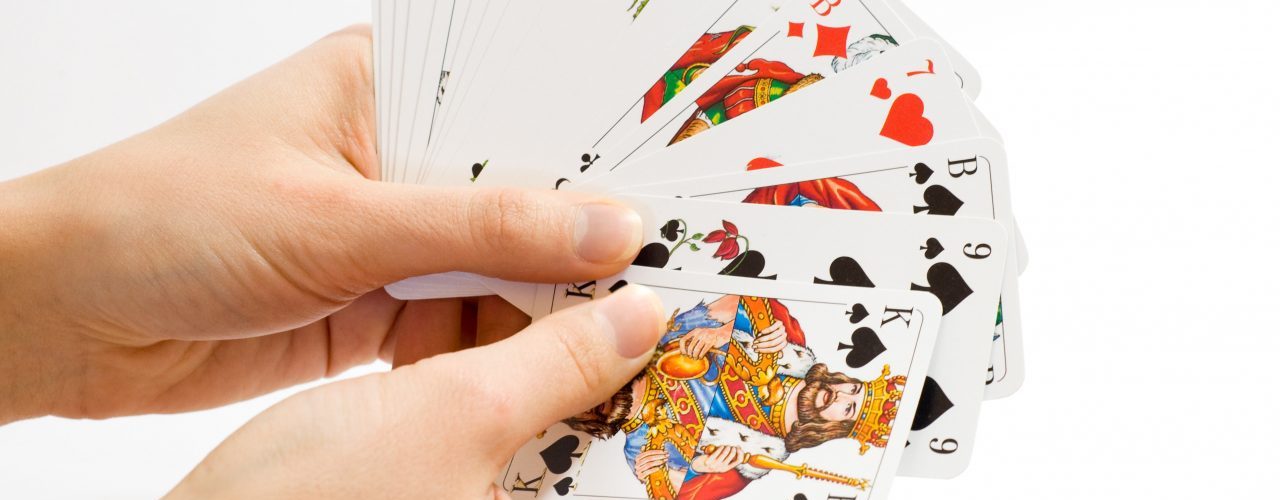Article written by one of the editors of VATupdate.com on the ECJ case where the Court rules that ‘bridge’ is not a sport. Original article was posted on LinkedIn: Blog on LinkedIn
The best answer to the question “Why should we hire you?”, was probably given by a former colleague of mine, who said: “I just love tax!”
I believe that if you are enthusiastic about something, you’re good at it already, or you want to become better. The other way around: If you’re good at something, you probably like to do it.
Of course, you can like doing something, but never become really good at it. Like me doing mountain biking. That may have several reasons. For example, you don’t have enough time to practice. Or there are just not enough places where you can go to. Maybe you don’t have people you can practice with, and who can motivate you, help you improve. But it always feels good to reach new goals and set new targets.
The concept of ‘sport’ is limited to activities, which are characterized by a not negligible physical element
I do admire people that excel at things beyond my capabilities. That’s also why watching sports can be inspiring. For example, the recent Olympic Games in Pyongyang: I coincidentally watched the final of the curling match between the USA and Sweden. Coincidentally, because I was just operated on my shoulder, and was sitting at home, still drugged and tired, when I turned on the TV. I had never watched curling before, but it was really fascinating. Even though I may never watch curling again, I found it intriguing to see the skills and concentration of the guys, sliding this piece of stone into a circle. And did you see the awesome outfits of the Mexican ski team? That in itself was worth watching them sliding down the slopes.
It’s probably not fair to people who really like curling, but I did ask myself: is curling really a sport? Similar to Jeu de Boules, or billiards, or darts, you could argue that these activities are more a ‘game’, instead of a sport.
Take pool, a billiard game that is often played on bars. Pool is a mental game. The atmosphere during a tournament is generally silent but for the crash of cue balls striking the other nine. Of course the players have to put the ball in the hole with their cue, and walk around the table to do so, but it’s mostly a game of skill and concentration. Compare that to sepak takraw, an intensive ball game, where players are tested to their physical and mental limits. It’s a fast-paced game that resembles a hybrid of soccer and volleyball. Sepak takraw is played with a small ball kicked at 80 mph (130 kph) by athletes smashing it with a series of zero gravity flips.
Some time ago I posted an article about the question if the card game Bridge is to be regarded a sport for VAT purposes. Now, the European Court of Justice has given its decision in this case.
Link to earlier article: https://www.linkedin.com/pulse/vat-during-holiday-season-bas-de-koning/
The Court argues that the concept of ‘sport’ is limited to activities, which are characterized by a not negligible physical element. In the specific case, it was asked if the card game Bridge, was to be regarded a sport for VAT purposes. While admitting that bridge involves logic, memory and planning, and may constitute an activity beneficial to the mental and physical health of regular participants, the Court decides that the fact that an activity promotes physical and mental health is not, of itself, a sufficient element for it to be concluded that that activity is covered by the concept of ‘sport’.
For me, it is still not completely clear when an activity falls under the definition of ‘sport’. As mentioned above, one could argue that when playing a game of darts, or potting some balls in a hole on a billiard table, the physical element is also almost negligible. But if you want to drag that line further and further, you may also end up in saying that driving a formula 1 racing car is in fact just turning a wheel and accelerating and braking a little. At least when you’re playing golf, you have a nice walk in a park, with hitting a ball every once in a while. And when sliding down a slope in a bobsled, the persons sitting in that sled had to run a little before they jump in…
What do you think about this case? Is bridge a ‘thinking sport’, or not really a sport? Where do you draw the line? Is that, as the title of this article suggests, where you are burning calories by physically moving your limps somewhat? And how minimal must this movement be, before it becomes a sport?
Please let me know in the comments below.
Source: Judgment in Case C-90/16 (English Bridge Union)
Bas de Koning is an independent tax specialist (www.taxdirector.nl – www.vatupdate.com), specialised in indirect taxation. He’s available for interim assignments and project, advice and training. You can find more information on www.simplyvat.nl















